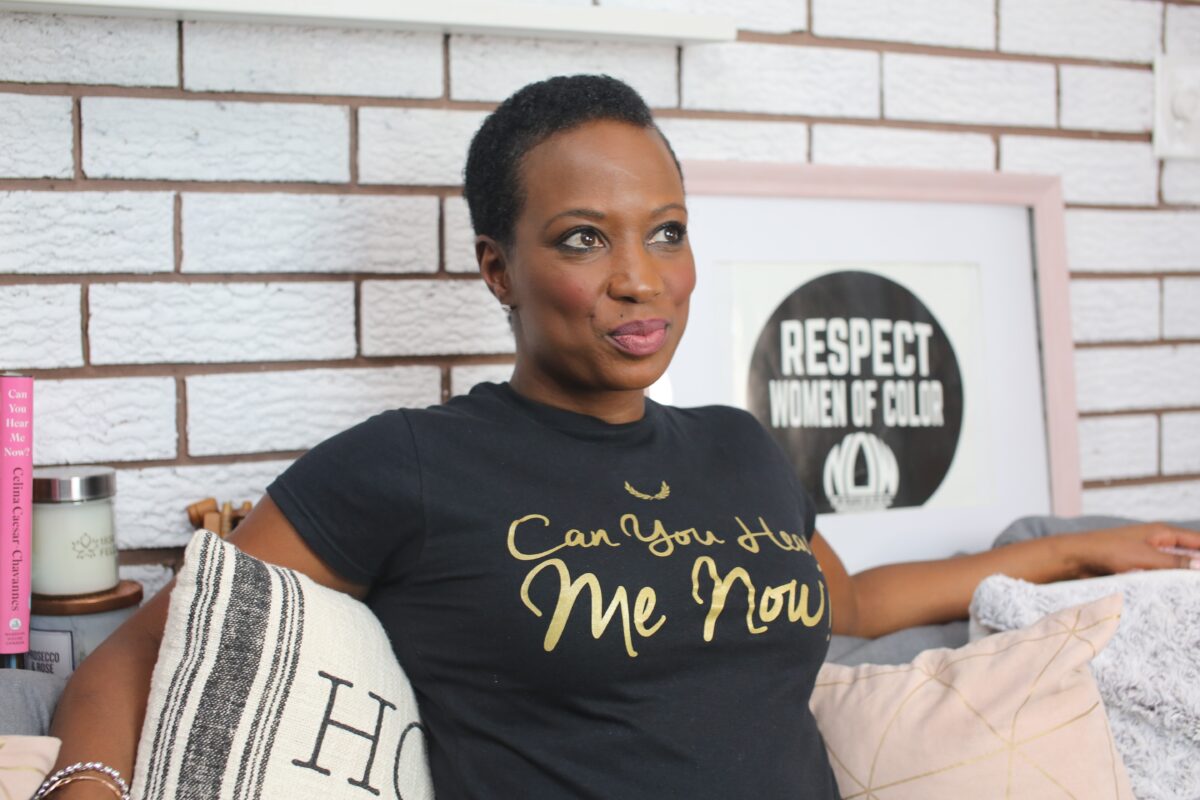Photo courtesy of Celina Caesar-Chavannes.
For Celina Caesar-Chavannes, the former Member of Parliament for the riding of Whitby and former Parliamentary Secretary to the Prime Minister, the medium is the message. Right now, that medium is Can You Hear Me Now? The memoir chronicles Caesar-Chavannes’ personal and professional journeys as a Black woman entrepreneur and politician. Indeed, the roadmap of her career hasn’t been without its share of twists and turns, but that’s precisely the message of Can You Hear Me Now? — the climb to the top and the fight for change come with both triumphs and mistakes. The trick is to embrace those mistakes, learn from them, and forge through.
Before serving as a Member of Parliament, you worked in the field of research management consultancy. What inspired your transition into politics?
There wasn’t really “inspiration” to transition. I was in an [Executive] MBA course and, as part of the program, there was a politics component. It was the first time ever that I’d had a political science angle to any of my formal education. I thought, “Oh, this is interesting. I can gain political capital.” At the time, I was co-chairing Canada’s first national epidemiology study on neurological conditions, looking at scope, impact, risk factors for diseases like Alzheimer’s, Parkinson’s, et cetera, and finding that people were facing real challenges having to move from province to province to get medications covered, or that caregivers [were experiencing] burnout, or that they weren’t able to survive on the monies that they had. I thought political capital can help with [this] business problem. I needed to put these two things together. That was the impetus for running.
Your work has been driven primarily by your advocacy for gender and racial equity. Where did your advocacy begin for you?
My initial cause was to have a national brain strategy. Looking at all of these challenges that people have with neurological conditions, [the question became,] “How do we invest in brain research in development that actually looks at how the brain functions?” The second was related to seniors [and] wanting to have a national senior strategy because many of these people with Alzheimer’s and Parkinson’s were below the poverty line, and their caregivers were really burnt out.
I wanted those two things, not necessarily from an equity perspective, but from a “this is not fair” perspective. It just so happened that while I was [on Parliament Hill], the conversations that I was hearing from other people made me want to speak out about things that nobody really was talking about. It’s easy to talk about a national brain strategy — it’s difficult for people to talk about racism. I wanted to amplify those voices of people who have these conversations [of their experiences with sexism and racism] in whispers.
What are some things you are proud of having accomplished during your time in office?
The thing that I’m most proud of in being in parliament was my advocacy around mental health. I ended up being an advocate for mental health and racial and social justice. When Jane Philpott [former Minister of Health] was advocating for the 2016 budget, she wanted $3 million for a national mental health program so that youth under 25 could get the services that they needed. I said, “Let’s be bold and ask for five.” Many of us went up to the microphone and spoke about [our mental health challenges], and we ended up getting $5 billion in the budget. So, yes, things can happen [in government] if there is the political will to make it happen.
Your book Can You Hear Me Now? dives deep into your own personal and professional journeys from being an entrepreneur to becoming a politician. When did you first decide to write your story? And how important was it for you to tell your story?
I had started writing the book in a different sort of form: I just was writing down lessons that I learned in business when I had my company. Penguin [Random House] said, “No, you have to give us a story behind the lesson.” I thought it was really important to write the book because our histories — histories of Indigenous, Black, people of colour — are erased from the history books and the consciousness of Canadians.
The book [allowed me to tell] my story in my own voice. The medium is the message. I have been careful to avoid some media outlets because I know that they will spin my story into their agenda. The medium, then, becomes their message, and my message is filtered through their medium, and therefore becomes their message.
I wanted my story to be not just about politics but one of healing, of forgiveness, and of empathy. I could have written about all the great things that I’ve done in my life because there’s a lot, but I wrote about the pain and the hurt and the shame and the things that made me feel guilty because we need to heal if we want to change spaces. The obstacles that I have to go through as a Black woman are completely different from someone who has a disability or is white. We need to have these truths [out there] in order to build towards the reconciliation.
Now that you are out of office, what does advocacy look like for you?
When it comes to advocacy, it really is, for me, understanding [myself first]. I went through politics ill-prepared, personally, for some of the challenges that I met. What I need to do now is personally understand Celina and really find her in order to be able to authentically go out and do the work around equity and empathy. I’m also hoping to do my PhD in understanding the intersection of empathy and equity: how the brain functions and what it does when empathy is either lacking or in abundance and how it impacts equity.
Jericho Tadeo | Contributing Writer




















